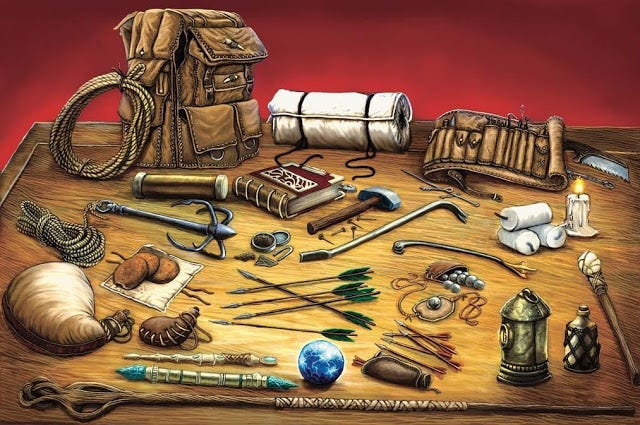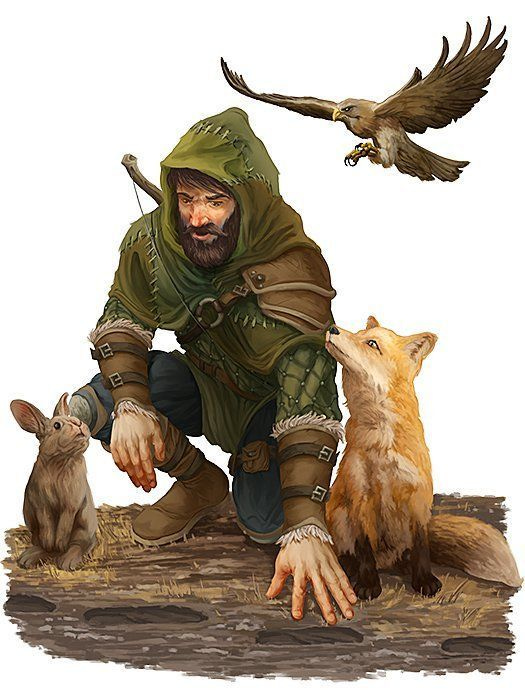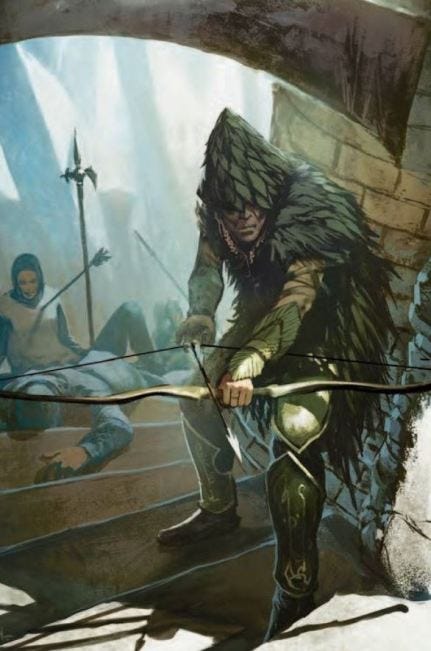Roleplaying and Resource Management
Think counting arrows isn't roleplaying? Think again, bucko.
I recent put a new adventuring party through character creation for Castles & Crusades. During the equipment-buying phase, my players began to notice something. Namely that their weapons, armor, and packs full of adventuring equipment all totaled up to more than they were able to carry without being burdened. This caused immediate panic with players worrying that they might have to sacrifice weapons and armor in order to carry everything. When I told them “Just buy the equipment you want. You’ll have to make choices about what you carry though,” they didn’t seem to comprehend it. How can you have more seemingly necessary equipment than you can carry? Later, I heard someone on a stream say “Counting arrows isn’t roleplaying.” That’s when I knew I wanted to write about this. I’ve talked about why tracking equipment is important, but let’s talk about why it’s part of roleplay.
What is roleplay exactly? For the purpose of this article, I will define roleplay as placing yourself into the mindset of a person in another situation and making decisions given that person’s perceptions and environment. In a fantasy RPG, that means placing yourself in the headspace of your character. People rarely struggle with this concept when it comes to social interactions and decision-making, but what many people don’t realize is that itinerant adventurers would have resources at the forefront of their minds. If you’re going into the wilderness 40 miles from the nearest town to explore ancient ruins, you’ll need to be aware of what you have on-hand to survive. If you start to run low, you’ll need to know if you have the resources to keep going or if you’ll have to turn back. Is your character bold enough to press on or so cautious that they’ll want to turn back?
Your character may prioritize certain resources over others. A Ranger may favor roughing it with low supplies because he can hunt for food and use herbs to make medicine. A Wizard might not have the same feelings. Class isn’t the only indicator of a character’s priority though. Alignment may change their perspective too. One of the coolest features of the Dark Sun 2e guide is the section that explains what each alignment would do with a short supply of water. If this isn’t roleplaying then the whole concept is basically reduced to playing a part like an actor.
Of course this kind of roleplay naturally extends to the realm of combat too. An archer will need to know how many arrows they have to use, but so will the rest of the party. Likewise, the Cleric will have to keep track of first aid supplies, a wizard will have to track components, etc. Also, every battle has an impact on subsequent battles. If you don’t have time to fully recover or resupply after an encounter, then that’s fewer resources for the next one. If you’re hunting a chimera, you may need to save the lion’s share of your arrows for it rather than unloading everything on this Orc encampment. Again, we see decision-making and tradeoffs coming into play here. This is how the game is supposed to be played because this is an additional challenge. Did you bring the right tool? Did you bring enough of something? If not, can you roll with the punches and plan accordingly next time?
If you don’t have a handle on this, then you don’t really have a handle on roleplaying. Your “role” informs part of your responsibility to the party. If you aren’t paying any attention to that then you aren’t playing your role. If you aren’t enforcing that dynamic at your table then you aren’t really allowing players to be distinct from one another. All of them are just costumes with different weapons if you take this aspect away.







